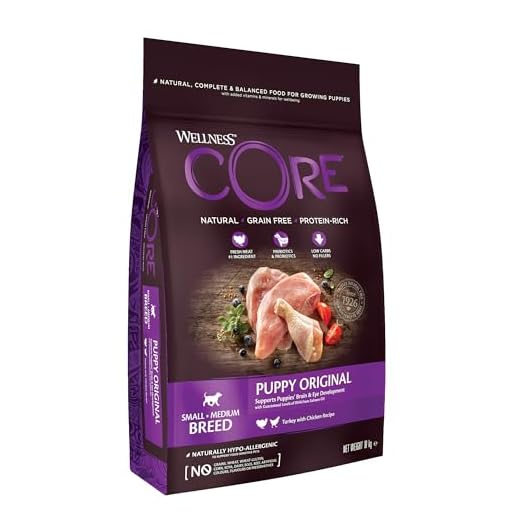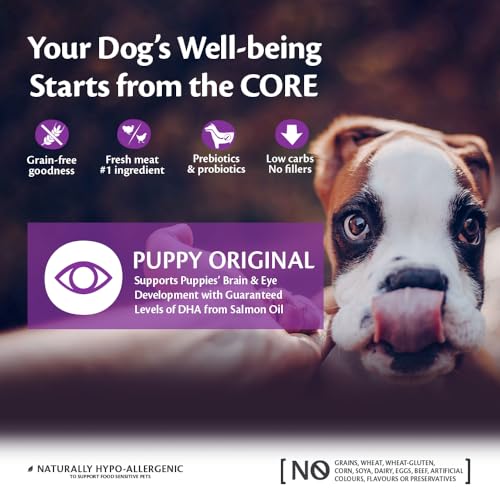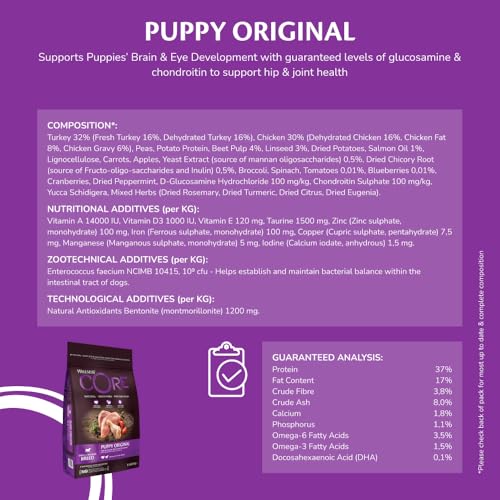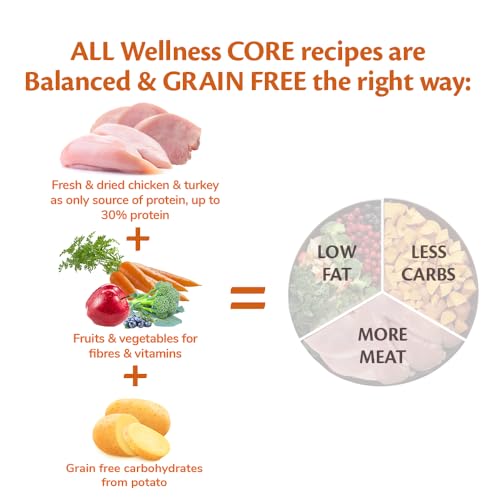




As a proud owner of a Chiweenie puppy, I understand the importance of providing the best nutrition for my furry companion. Chiweenies, a delightful crossbreed between Chihuahuas and Dachshunds, possess unique dietary requirements that necessitate careful consideration. Finding the ideal dog food for these energetic and affectionate pups is crucial for their overall health and well-being.
Chiweenie puppies are known for their small stature and boundless energy, making their nutritional needs distinct from larger breeds. Their petite size requires a diet rich in essential nutrients to support healthy growth and development. As such, selecting a high-quality dog food formulated specifically for small breeds like the Chiweenie is paramount.
Moreover, as a responsible pet owner, I recognise the significance of feeding my Chiweenie puppy a balanced diet that meets their unique nutritional requirements. This entails understanding the importance of protein, fats, carbohydrates, vitamins, and minerals in their diet, all of which play integral roles in their growth, energy levels, and overall health.
Understanding the Nutritional Needs of Chiweenie Puppies
When it comes to raising a healthy and happy Chiweenie puppy, understanding their unique dietary requirements is crucial. These adorable crossbreeds, a mix between a Chihuahua and a Dachshund, have specific nutritional needs that differ from other small breeds. Providing the right balance of nutrients will ensure they grow strong and stay energetic.
Chiweenie puppies are known for their high energy levels and playful nature. To support their active lifestyle, they need a diet rich in high-quality proteins and healthy fats. Proteins are essential for muscle development, while fats provide the necessary energy for their daily adventures. Additionally, a balanced diet should include carbohydrates for sustained energy, vitamins and minerals for overall health, and adequate hydration.
Key Nutritional Components for Chiweenie Puppies
It’s important to focus on a few key nutritional components when selecting food for your Chiweenie puppy:
- Protein: Aim for a protein source that is easily digestible, such as chicken, turkey, or fish. These provide the building blocks for muscle growth and maintenance.
- Fat: Healthy fats, like those found in fish oil or flaxseed, are crucial for energy and support skin and coat health. Look for a food that lists these fats among the top ingredients.
- Carbohydrates: Complex carbohydrates, like sweet potatoes and brown rice, offer long-lasting energy and should be included in moderate amounts to avoid excessive weight gain.
- Vitamins and Minerals: Essential nutrients like calcium, phosphorus, and vitamins A and D are vital for bone growth and immune function. Ensure the food includes a balanced blend of these nutrients.
In addition to these components, consider the specific needs of Chiweenie puppies, such as their small size and rapid growth rate. Feeding them a diet formulated for small breeds ensures they receive the appropriate nutrient density in a portion size suitable for their tiny stomachs.
Feeding schedules are also important. Chiweenie puppies benefit from multiple small meals throughout the day rather than one or two large meals. This approach helps maintain their energy levels and prevents hypoglycemia, a common issue in small breed puppies.
Lastly, always consult with your veterinarian to tailor a diet plan specific to your Chiweenie puppy’s individual health needs. Regular check-ups and discussions about their diet will help address any concerns and ensure your furry friend thrives.
Factors to Consider When Choosing Food for Chiweenie Puppies
When selecting food for Chiweenie puppies, it’s crucial to understand their unique nutritional needs. These small, energetic dogs, a mix between Chihuahua and Dachshund breeds, require a balanced diet to support their growth and maintain their health. Ensuring the right nutrients are provided will help your Chiweenie pup develop strong bones, a healthy coat, and an optimal immune system.
Chiweenie puppies are prone to certain health issues such as dental problems, obesity, and joint issues. Therefore, it’s essential to choose a dog food that caters to these specific concerns. Paying attention to the ingredients and the quality of the food can make a significant difference in your puppy’s overall wellbeing.
Key Considerations for Choosing the Right Food
- Protein Content: Puppies need high-quality protein to support muscle growth and development. Look for dog food that lists a specific meat source, such as chicken, beef, or lamb, as the primary ingredient.
- Calcium and Phosphorus: These minerals are vital for developing strong bones and teeth. Ensure the dog food contains an appropriate balance to prevent skeletal issues.
- Healthy Fats: Fats are necessary for energy and healthy skin and coat. Opt for foods that include sources of omega-3 and omega-6 fatty acids, like fish oil or flaxseed.
- Small Kibble Size: Due to their small mouths and potential dental issues, Chiweenie puppies benefit from smaller kibble sizes that are easier to chew and digest.
- Digestibility: High-quality, easily digestible ingredients help ensure your puppy absorbs the necessary nutrients. Avoid fillers like corn and soy, which can be hard on a puppy’s digestive system.
Additionally, consider any specific dietary restrictions or allergies your puppy might have. Some Chiweenies may be sensitive to certain ingredients like grains or artificial additives, so selecting a food that is hypoallergenic or grain-free might be beneficial.
Lastly, it’s always a good idea to consult with your veterinarian before making any significant changes to your puppy’s diet. They can provide personalised recommendations based on your puppy’s health needs and growth patterns.
Essential Ingredients for Chiweenie Puppy Food
When selecting the best food for my Chiweenie puppy, I always make sure to check the ingredients list meticulously. Puppies require a balanced diet to support their rapid growth and high energy levels, and Chiweenies are no exception. Ensuring that their food contains high-quality ingredients is crucial for their health and development.
Understanding which ingredients are beneficial and which to avoid can be overwhelming. Through research and consulting with veterinarians, I have identified some key components that should be present in the food of my Chiweenie puppy to promote optimal health and well-being.
Key Ingredients to Consider
-
Protein Sources: High-quality animal proteins like chicken, beef, and fish are vital. These proteins provide essential amino acids necessary for muscle development and energy. I always look for foods where the first ingredient listed is a specific meat source.
-
Healthy Fats: Fats are a crucial energy source and support brain development in puppies. Ingredients such as chicken fat and fish oil are excellent choices. Fish oil, in particular, is rich in omega-3 fatty acids, which promote a healthy coat and skin.
-
Whole Grains and Carbohydrates: While some prefer grain-free diets, I find that whole grains like brown rice and oats provide necessary fibre and energy. These ingredients help in maintaining stable energy levels throughout the day.
-
Vitamins and Minerals: Essential vitamins and minerals support overall health. Ingredients such as sweet potatoes, carrots, and spinach are great sources of vitamins A, C, and E, which are important for immune function and healthy growth.
-
Probiotics and Fibre: For digestive health, ingredients like chicory root and beet pulp are beneficial. These components promote a healthy gut flora and regular digestion, which are particularly important for small breeds prone to digestive issues.
By focusing on these essential ingredients, I ensure that my Chiweenie puppy gets the nutrition needed for a healthy and active life. Reading labels carefully and choosing reputable brands with high-quality ingredients is a practice that gives me peace of mind and keeps my puppy thriving.
Reviews of the Best Dog Food Brands for Chiweenie Puppies
When I first brought my Chiweenie puppy home, I was overwhelmed by the sheer number of dog food options available. I wanted to ensure my new furry friend received the best nutrition possible, tailored to his unique needs as a small breed with a mix of Dachshund and Chihuahua heritage. Through research and consultation with my vet, I discovered several exceptional dog food brands that stood out in terms of quality and suitability for Chiweenie puppies.
Each of these brands offers specific benefits that cater to the health requirements of small breed puppies, focusing on ingredients that support growth, energy levels, and overall well-being. Below, I’ve detailed my findings on these brands, highlighting what makes each one a great choice for Chiweenie puppies.
Recommended Dog Food Brands for Chiweenie Puppies
-
Royal Canin Small Puppy Dry Dog Food
Top RatedBeta Puppy Dry Dog Food ChickenTailored nutrition for growing puppiesManufactured with chicken as the main ingredient, this food supports digestive health with natural prebiotics. Free from artificial colors and preservatives, it ensures essential nutrients for growing dogs.This brand is formulated specifically for small breed puppies, with a focus on balanced nutrition to support rapid growth and high energy levels. The kibble size is perfect for tiny mouths, making it easy for Chiweenies to chew and digest.
-
Blue Buffalo Life Protection Formula Puppy
Blue Buffalo is known for its high-quality ingredients, including real meat as the first ingredient. This formula is enriched with DHA and ARA, essential fatty acids found in mother’s milk, which are important for cognitive development and retinal health.
-
Wellness Complete Health Small Breed Puppy
This food provides a holistic approach to nutrition, ensuring a balanced diet with deboned chicken, oatmeal, and salmon meal. It’s fortified with antioxidants, probiotics, and omega fatty acids, which are vital for a puppy’s growth and immune system.
-
Hill’s Science Diet Puppy Small Paws
Hill’s Science Diet is often recommended by veterinarians for its science-based approach to pet nutrition. The Small Paws line is tailored to small breed puppies, offering a precise blend of nutrients to promote healthy development and strong bones.
-
NUTRO Ultra Small Breed Puppy
NUTRO Ultra combines high-quality protein from chicken, lamb, and salmon with a unique blend of superfoods like kale, chia, and blueberries. This formula is designed to provide complete and balanced nutrition, supporting the unique needs of small breed puppies.
Choosing the right food for your Chiweenie puppy can make a significant difference in their health and happiness. Each of these brands offers something unique, ensuring that your puppy gets the best start in life with a diet tailored to their specific needs. Always consult with your veterinarian to determine the best choice for your individual pet.
Feeding Schedule and Portion Control for Chiweenie Puppies
Ensuring that your Chiweenie puppy gets the right amount of food at the right times is crucial for their growth and overall health. As a mix of Chihuahua and Dachshund, Chiweenies have specific dietary needs that must be met with careful planning. In this guide, I’ll share my personal approach to managing my Chiweenie’s feeding routine and portion sizes.
When my Chiweenie was a puppy, I quickly learned the importance of a consistent feeding schedule. Puppies, in general, require more frequent meals than adult dogs due to their rapid growth and higher energy needs. For my Chiweenie, I opted for four meals a day initially, gradually reducing to three meals as they approached six months of age. This schedule ensured they received a steady supply of nutrients throughout the day.
Implementing Portion Control
Portion control is essential to prevent overfeeding, which can lead to obesity and other health issues in Chiweenies. I started by consulting with my veterinarian to determine the appropriate daily caloric intake based on my puppy’s weight, age, and activity level. This gave me a clear guideline for how much food to offer at each meal.
Here’s the basic breakdown I followed:
- 0-3 months: Four meals per day, each consisting of about 1/4 cup of high-quality puppy food.
- 3-6 months: Three meals per day, each around 1/3 cup.
- 6-12 months: Two to three meals per day, transitioning to 1/2 cup as they grew.
It’s important to adjust portion sizes based on your puppy’s growth and weight. Regular check-ups with the vet helped me stay on track and make necessary adjustments. Additionally, I monitored their body condition, ensuring they maintained a healthy weight without becoming underweight or overweight.
By sticking to a consistent feeding schedule and being diligent about portion control, I was able to support my Chiweenie’s healthy development. Every puppy is unique, so it’s vital to stay attentive to their specific needs and consult with a vet for tailored advice.
Homemade Dog Food Recipes for Chiweenie Puppies: Tips and Tricks
Creating homemade dog food for your Chiweenie puppy can be a rewarding experience that ensures they receive a nutritious and balanced diet. Tailoring meals to their specific needs can lead to improved health, increased energy levels, and a stronger bond between you and your pet.
However, making homemade dog food requires careful planning and knowledge to ensure that your puppy gets all the essential nutrients. Here are some tips and tricks to help you get started and succeed in preparing meals for your Chiweenie puppy.
Tips and Tricks for Making Homemade Dog Food
1. Consult with Your Veterinarian: Before you start preparing homemade meals, it’s crucial to talk to your vet. They can provide guidance on your puppy’s specific nutritional requirements and help you design a balanced diet.
2. Ensure Nutritional Balance: Puppies need a balanced diet that includes protein, fat, carbohydrates, vitamins, and minerals. Use a variety of ingredients to cover all these bases. Some key ingredients include:
- Protein: Chicken, turkey, beef, or fish
- Carbohydrates: Brown rice, quinoa, or sweet potatoes
- Vegetables: Carrots, spinach, peas, or broccoli
- Fats: Fish oil or flaxseed oil
3. Avoid Harmful Ingredients: Some human foods can be toxic to dogs. Avoid ingredients like chocolate, grapes, onions, garlic, and certain artificial sweeteners like xylitol.
4. Use Supplements if Needed: Sometimes, homemade meals might lack certain nutrients. Your vet may recommend supplements to ensure your puppy gets everything they need for healthy growth.
5. Maintain Portion Control: Puppies require different portions compared to adult dogs. Follow your vet’s recommendations on portion sizes to avoid overfeeding or underfeeding.
6. Cook Ingredients Thoroughly: Ensure all meats are cooked thoroughly to avoid bacterial infections. Avoid using raw diets unless specifically advised by your vet.
7. Monitor Your Puppy’s Health: Regularly check your puppy’s weight, coat condition, and energy levels. Any changes might indicate a need to adjust their diet.
By following these tips and tricks, you can provide your Chiweenie puppy with a nutritious and delicious homemade diet. Remember, the key to success is ensuring a balanced and varied diet, and regular consultations with your veterinarian to keep your puppy healthy and happy.
Homemade dog food can be a fantastic way to cater to your Chiweenie puppy’s dietary needs, promoting better health and well-being. With careful planning and attention to detail, you can enjoy the benefits of homemade meals for your furry friend.
Best Dog Food For Chiweenie Puppies
Features
| Part Number | 10773 |
| Model | 10773 |
| Size | 10kg |
| Language | French |
Features
| Part Number | HARRGSFCP-10 |
| Model | HARRGSFCP-10 |
| Release Date | 2024-01-01T00:00:01Z |
| Size | 10 kg (Pack of 1) |
Features
| Part Number | 500002 |
| Model | 500002 |
| Release Date | 2019-12-23T00:00:01Z |
| Size | 14 kg (Pack of 1) |
Features
| Part Number | XPJR |
| Model | 02CHPJ |
| Color | transparent |
| Release Date | 2015-04-21T00:00:01Z |
| Size | 12 kg (Pack of 1) |
Features
| Part Number | 12231703 |
| Model | 12531981 |
| Release Date | 2014-05-23T00:00:01Z |
| Size | 1 count (Pack of 1) |
| Publication Date | 2014-05-23T00:00:01Z |
| Price history for Beta Puppy Dry Dog Food Chicken | |
|---|---|
|
Latest updates:
|
|
Features
| Part Number | DPDC70 |
| Model | DPDC70 |
| Color | Puppy (Chicken, Salmon & Peas) |
| Size | 7 kg (Pack of 1) |
| Language | English |
| Price history for Lily's Kitchen Natural Puppy Food | |
|---|---|
|
Latest updates:
|
|
Features
| Is Adult Product | |
| Release Date | 2025-05-17T00:00:01Z |
| Language | English |
| Number Of Pages | 213 |
| Publication Date | 2025-05-17T00:00:01Z |
Features
| Part Number | SF7.5PUPPY |
| Model | SF7.5PUPPY |
| Color | Brown |
| Size | 7.5 kg (Pack of 1) |
| Language | English |
Q&A:
What should I look for in dog food for my Chiweenie puppy?
When choosing dog food for your Chiweenie puppy, look for high-quality ingredients with a good balance of protein, fats, and carbohydrates. Ensure the food contains essential vitamins and minerals, such as calcium for bone development, and DHA for brain development. Avoid foods with artificial preservatives, colours, and flavours.
How often should I feed my Chiweenie puppy?
Chiweenie puppies typically need to be fed 3 to 4 times a day. Small, frequent meals help maintain their energy levels and support healthy growth and development. As they grow older, you can gradually reduce the feeding frequency to twice a day.
Are grain-free diets good for Chiweenie puppies?
Grain-free diets can be suitable for Chiweenie puppies, especially if they have allergies or sensitivities to grains. However, it’s essential to ensure that the food provides a balanced diet with all the necessary nutrients. Consult your vet before making any significant changes to your puppy’s diet.
Can I give homemade food to my Chiweenie puppy?
Homemade food can be given to your Chiweenie puppy, but it must be well-balanced and nutritionally complete. It’s crucial to include the right proportions of protein, fats, carbohydrates, vitamins, and minerals. Consulting with a veterinarian or a pet nutritionist can help you create a proper diet plan for your puppy.
















































